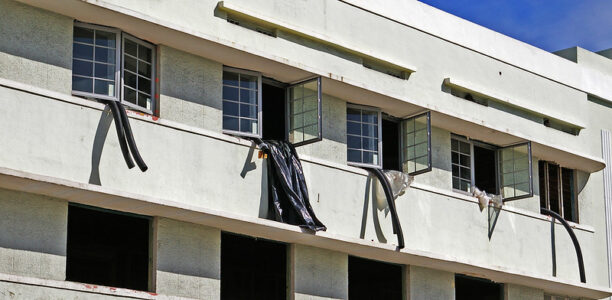In case you’re wondering about the effect of the pandemic on hotels, rest assured that it is not pretty. If you remember, WCC’s Master Plan calls for building a hotel on campus. According to the plan, WCC will own the hotel building and contract its operation to someone who knows something about running a hotel. Building ownership comes with a lot of expenses, since hotels have very high maintenance costs.
Operators renovate hotels regularly. In fact, prior to the pandemic, they renovated the average hotel about once per decade – or less. This schedule does not include the standard replacements that hotels conduct for bedding, furniture and carpets. That happens about once every 5 years.
I bring this up because WCC’s plan included building maintenance, which – based on the condition of WCC’s other building – seems to be a problem for WCC. Currently, the campus enjoys a luxurious $300,000 maintenance budget. (A hotel would make short work of this.) Additionally, one of the great challenges that the pandemic left behind for hotels was deferred maintenance. WCC already has a significant problem with deferred maintenance, but in post-pandemic world, it is a major concern for hotels.
The problem, of course, is that hotel guests are notoriously intolerant of things that should have been done, but were not. Newly released data from Jones Lang LaSalle – a commercial property management company – show that hotel revenues rise and fall with renovations. Unfortunately, renovations can be disruptive to the operation of the hotel. Full-scale renovations are messy, and often require the operator to shut the hotel down for periods when the heaviest demo and construction occur.
Hotel renovations are costly but necessary for viability
Recently, materials shortages have made full-scale renovations for hotels very challenging. Aside from availability, the cost and lead times of critical materials like steel, concrete, lumber, and soft goods are challenging to work around. This all cuts into the profitability of the hotel, which would – in WCC’s case – seriously diminish the income-generation potential for such a project.
Income generation seems to be the driving factor for WCC’s side projects. Unfortunately, the care and maintenance of a hotel building is expensive. Hotels are among the most expensive buildings to operate, which means that their relative profitability varies depending upon where the hotel is in its renovation cycle.
Taking on a building that requires regular and expensive full renovations every decade, interspersed with updates to furniture and bedding every five years doesn’t sound like a moneymaker. It sounds like a money pit. Should WCC decide to pursue this aspect of its Master Plan, the Washtenaw County taxpayers should act to limit WCC’s ability to spend its operating millage(s) on anything other than the direct operation of the College.
Photo Credit: Richard Wasserman , via Flickr






















